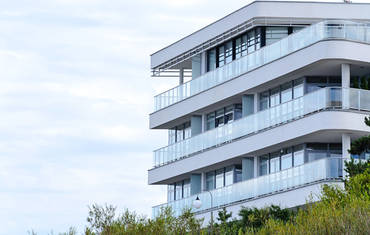Real Estate Advice
January 04, 2023
Usufruct: Definition and general information
All about usufruct...

Usufruct is the right to use property or to receive income from it, without owning it. The usufructuary has rights and obligations. The right to usufruct is temporary. Usufruct is complementary to bare ownership, through which the bare owner has title to the same property without being able to use it or collect the income. The usufruct can result from an inheritance, a gift, an ascendancy or even a contract.
The definition of usufruct
The usufruct is, according to article 578 of the Civil Code, "the right to enjoy the things of which another has the property, like the owner himself, but with the responsibility of preserving the substance".
The usufructuary is then only the owner of a part of the right of ownership composed of the usufruct and the bare ownership. This is called the dismemberment of ownership.
In short, usufruct is the right for a person to use movable or immovable property (usus) and to receive the fruits (fructus) without owning it (abusus). The usufructuary cannot, on the other hand, dispose of the property, that is to say transfer it, which is a power belonging to the bare owner.
The rights of the usufructuary
According to article 582 of the Civil Code, it provides that the “usufructuary” has the right to enjoy any kind of fruit, whether natural, industrial or civil, that the object of which he has the usufruct can produce. The usufructuary can then dispose of any kind of movable or immovable property (apartment, car, etc.) and has the right to use the property as he sees fit, provided that he maintains it.
In addition, according to articles 583 and 584 of the Civil Code, the usufructuary can also collect the fruits of the property, in other words crops (natural fruits) such as tree crops, or collect interest on a sum money, such as rent. This income is collected throughout the duration of the usufruct and it should be noted that at the end of the usufruct, you cannot claim compensation for having improved the property.
The usufructuary can also lease to another for a period of less than 9 years, and even sell or transfer his right free of charge. He may also rent the property subject to the usufruct. The fact of leasing a rural fund or a building for commercial, industrial or artisanal use must all the same be subject to the agreement of the bare owner.
The obligations of the usufructuary
Article 600 of the Civil Code provides that "the usufructuary takes things in the state in which they are, but he can only take possession of them after having had them erected, in the presence of the owner (bare owner), or duly summoned, an inventory of the movables and a state of the buildings subject to usufruct”.
The usufructuary is required to return the property in the same condition as when he obtained the usufruct. Maintaining the property is therefore part of his duties. The usufructuary is also liable for maintenance costs and minor repairs. As for the major repairs listed in article 606 of the Civil Code, they are the responsibility of the bare owner. When it comes to real estate, the usufructuary must pay property tax and housing tax.
Termination of usufruct
The duration of the usufruct is defined by article 619 of the Civil Code. It is set at 30 years for legal persons. The usufruct then ends at the end of this period, if however the duration of the usufruct has been defined beforehand.
In the case of property belonging to a child, the usufruct enjoyed by his parents ends when he reaches the age of 16. Regarding the other forms resulting from the gift or inheritance, the death of the usufructuary is one of the reasons for the extinction of the usufruct. The bare owner then becomes full owner of the assets.
The usufructuary may also be deprived of his right in the event of misuse of the property from which he benefits or non-compliance with his obligations. For example, we can cite the case of poor maintenance of real estate, attempted fraud or even the conclusion of non-regulatory leases.
But also, if the usufructuary does not make use of his right for a period of 30 years, the usufruct is extinguished. Namely that the period runs as soon as the non-use is noted.
Evaluation of the usufruct
In order to determine the value of the usufruct, French law provides for a tax scale that evolves gradually according to the age of the usufructuary. It is used to calculate the amount of registration fees in the event of donation, inheritance, sale, etc. For example, when the usufructuary is less than 21 years old, the value of the usufruct is 90% of the value of the property, while when the usufructuary is between 71 and 81 years old, it is only by 30%. However, this scale remains only indicative and the parties can determine the values between themselves.
Winter Immobilier advises you for your future real estate project in Nice
Would you like more advice on real estate and more particularly on the Nice market? Do not hesitate to visit our real estate agency in Nice Gambetta or to contact our advisers directly by phone!






